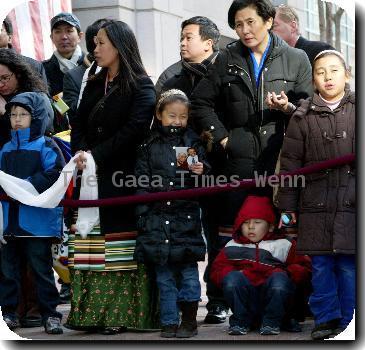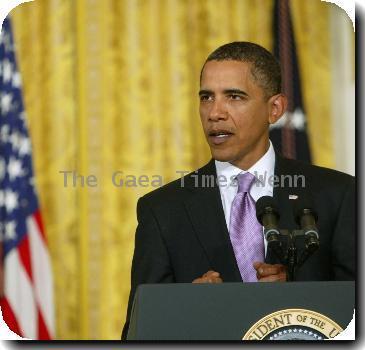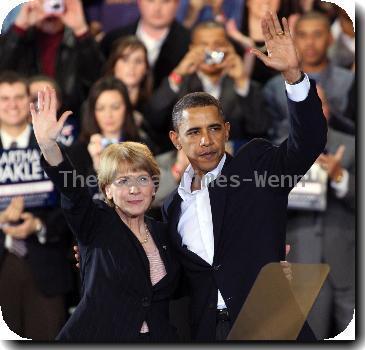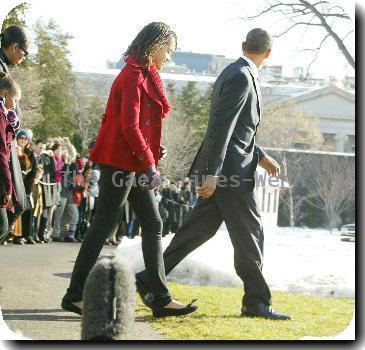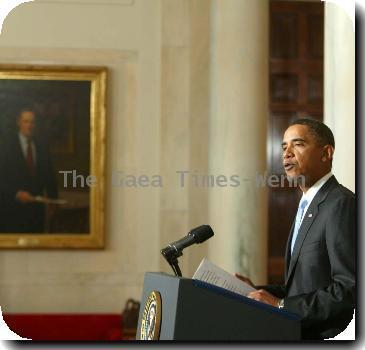China protests Obama meeting with Dalai Lama, but rhetoric relatively constrained
By APThursday, February 18, 2010
China protests Obama meeting with Dalai Lama
BEIJING — China said President Barack Obama’s meeting with the Dalai Lama “seriously harms U.S.-China relations,” but the way the two countries have handled the White House chat indicates instead that both would rather avoid a major crisis.
Vice Foreign Minister Cui Tiankai summoned U.S. Ambassador Jon Huntsman on Friday to protest Thursday’s meeting, which has been another test of rocky ties already strained in recent weeks by issues ranging from Taiwan arms sales to cyber-spying allegations.
“The behavior of the U.S. side seriously interferes in China’s internal politics, seriously hurts the national feelings of the Chinese people and seriously harms U.S.-China relations,” a Foreign Ministry statement said, quoting spokesman Ma Zhaoxu.
But the statement echoed Beijing’s response to previous U.S. presidential meetings with the exiled Tibetan Buddhist leader. And in one of the clearest indications that China wants to avoid a crisis, Beijing on Wednesday allowed five U.S. warships to make a port call in the Chinese territory of Hong Kong. China has canceled such visits in the past to show its displeasure with U.S. actions.
For its part, the White House gave the Dalai Lama relatively low-profile treatment, holding the meeting in the Map Room, a less prominent venue than the Oval Office.
There was no welcome fanfare, and Obama made no public comments. The White House banned journalists and distributed a single photo of the two leaders.
While the meeting was long expected, the administration had taken considerable measures to limit its impact on China-U.S. relations. Obama declined to see the Dalai Lama during his Washington stay in October because it would have come before the president’s China visit in November.
China accuses the Dalai Lama of seeking to remove Tibet from Chinese rule and objects strongly to all contact between him and overseas leaders.
Meetings between the Dalai Lama and U.S. presidents became standard under former President George H.W. Bush nearly 20 years ago. But the choreography is always delicate because of China’s sensitivities.
The White House said Obama told the Dalai Lama that he supports the preservation of Tibet’s culture and supports human rights for its people. He also gave encouragement to the Dalai Lama’s request for talks with the Chinese government.
Thursday’s meeting came when U.S.-Chinese relations are particularly raw, with China suspending military-to-military exchanges and warning of further retaliation over the Obama administration’s approval of a multibillion-dollar arms sale to Taiwan, the self-governing democratic island that Beijing claims as its own.
But Jin Canrong, of the School of International Studies at Beijing’s Renmin University, said he saw the Tibet issue declining in significance against the need for China and the U.S. to work together on economic and political issues.
Chinese President Hu Jintao is expected to visit the U.S. this year, and both sides soon will hold another round of their high-level Strategic and Economic Dialogue.
The impact of Thursday’s meeting was also limited because it came during China’s national Lunar New Year holiday, when government offices are closed. Neither the White House nor the Dalai Lama said whether the timing was deliberate.
After the meeting, the Dalai Lama chided Beijing for taking a “childish” and “limited” approach to Tibet’s quest for greater autonomy and said Obama had been “very much supportive” of his views on human rights and the concerns of the Tibetan people.
The 75-year-old Nobel Peace Prize winner denies China’s accusations of separatism, saying he wants only for Tibetans to have a greater say over their affairs while remaining under Chinese rule. He fled Tibet in 1959, nine years after China sent communist forces to occupy the Himalayan region, and has since led a self-declared government-in-exile in India.
Sporadic contacts between the Dalai Lama’s envoys and Chinese officials were renewed last month after a break of more than a year. No breakthroughs were announced.
Tags: Asia, Barack Obama, Beijing, China, District Of Columbia, East Asia, Geography, Greater China, Hu Jintao, North America, Tibet, United States
